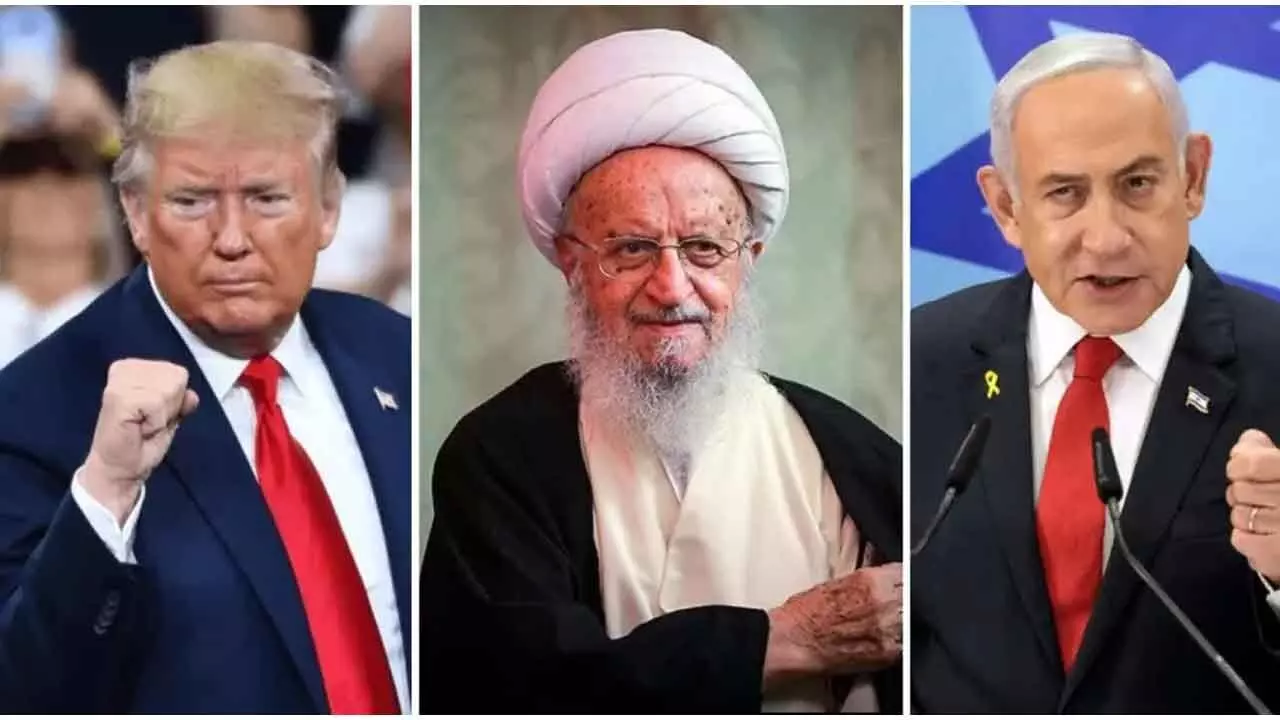Iran's Top Cleric Issues Explosive Fatwa Against Trump and Netanyahu: A Call to Arms?
Iran's Grand Ayatollah issues a powerful fatwa against Donald Trump and Benjamin Netanyahu, declaring them "enemies of God" and calling for Muslim resistance. Learn what this religious decree means amidst escalating Middle East tensions.
Iran's Top Cleric Issues Explosive Fatwa Against Trump and Netanyahu: A Call to Arms?

In a stunning move reverberating across the Middle East, one of Iran's most senior Shiite clerics has issued a powerful fatwa, branding President Donald Trump and Israeli Prime Minister Benjamin Netanyahu "enemies of God" and urging Muslims worldwide to unite against them. This isn't just a religious decree; it's a stark declaration with potentially profound implications.
Grand Ayatollah Naser Makarem Shirazi, a revered figure within Iran's religious hierarchy, asserted in his statement that anyone—individual or government—who threatens Iran's Supreme Leader or other Shia religious leaders (Marja) is considered a "mohareb," or one who wages war against God. Under Iran's strict Islamic law, this grave offense can carry extreme penalties, including execution, amputation, crucifixion, or even exile.
"Any person or regime that threatens the Leader or Marja (May God forbid) is considered a warlord or mohareb," Makarem stated, according to the Iranian news agency Mehr.
Adding further weight to his decree, the Ayatollah declared that any form of support for Trump or Netanyahu is "haram," or forbidden, for Muslims. "It is necessary for Muslims across the world to make these enemies regret their actions," the fatwa emphasized, seemingly a direct call for widespread opposition.
A Religious Order Amidst Regional Conflict
This incendiary fatwa emerges hot on the heels of a tense 12-day conflict between Iran and Israel, which ignited on June 13. Reports indicate that Israeli airstrikes targeted senior Iranian military figures and scientists linked to the nation's nuclear program. Iran swiftly retaliated, launching ballistic missiles at Israeli cities.
The regional skirmish escalated dramatically when the United States joined Israeli forces in attacking three Iranian nuclear facilities. Tehran, in turn, struck back with missile launches on an American military base located in Qatar.
The fatwa further promises spiritual rewards for any Muslim who suffers loss or hardship while acting upon this decree, describing them as "fighting in the path of God"—a powerful incentive within Islamic doctrine.
Understanding the "Fatwa"
So, what exactly is a fatwa? It's a formal religious opinion handed down by a senior Islamic scholar, known as a Marja in Shia Islam. While not a legally binding ruling in the same way a court judgment is, a fatwa carries immense spiritual weight for followers and is widely expected to be adhered to by Islamic communities and governments alike.
This isn't the first time Iran has leveraged a fatwa as a political instrument. Perhaps the most infamous instance was in 1989 when Iran’s then-Supreme Leader Ayatollah Khomeini issued a fatwa calling for the death of author Salman Rushdie over his book, The Satanic Verses, which many Muslims deemed blasphemous. That decree led to violent attacks on translators and publishers and forced Rushdie into decades of hiding. He endured multiple assassination attempts, including a brutal stabbing in 2023 that left him blind in one eye.
The issuance of this new fatwa against prominent international figures marks a significant development, underscoring the deep-seated religious and political tensions in the region.

